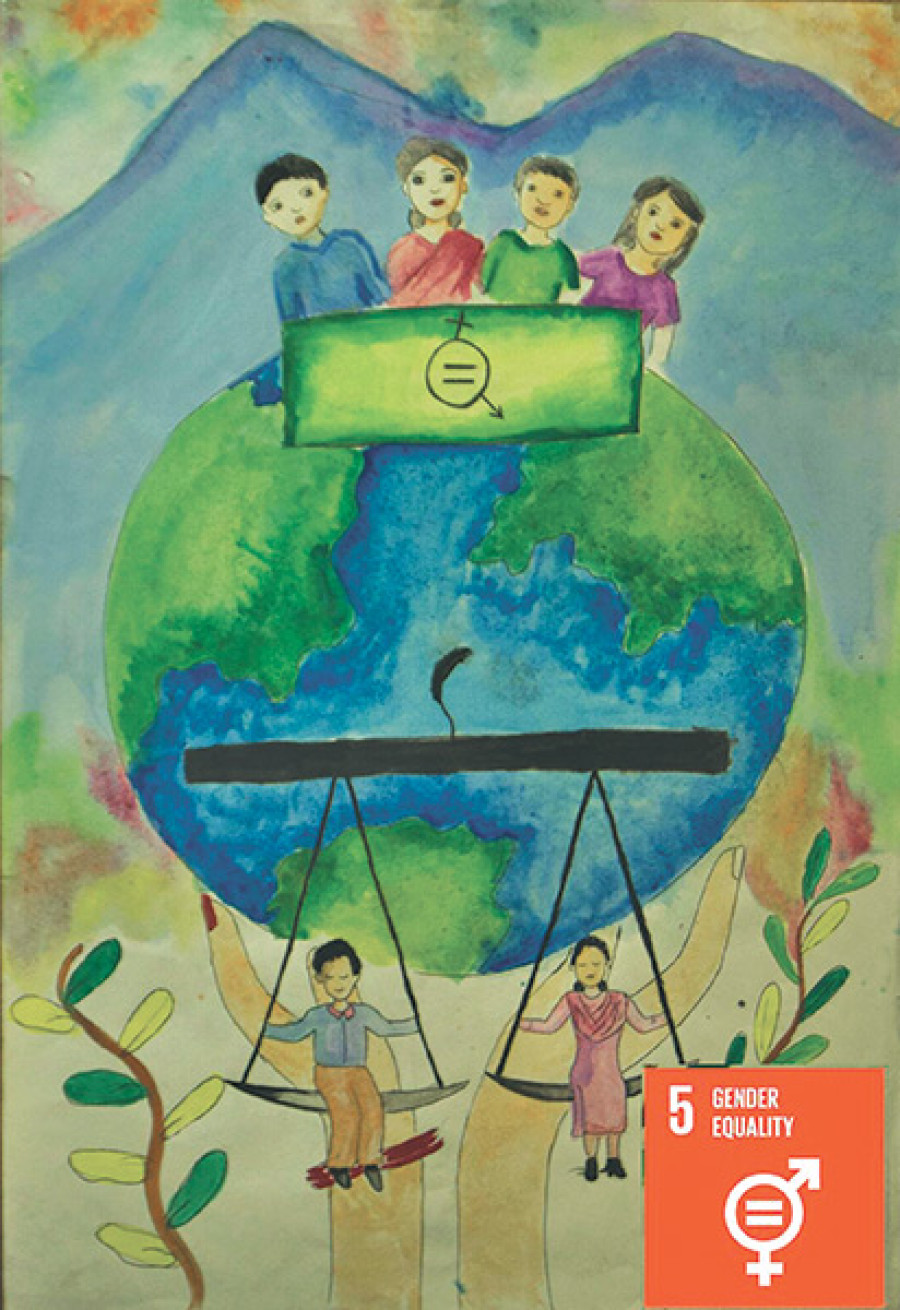Opinion
Fast and faster
As a child, I used to run a lot up and down the hill in my village carrying heavy loads on my head. When my karate coach suggested I try running, I only knew about road racing.
Mira Rai
As a child, I used to run a lot up and down the hill in my village carrying heavy loads on my head. When my karate coach suggested I try running, I only knew about road racing. I loved it, but I didn’t know there was such a thing as trail racing. It was no big deal for me because I was used to running in the mountains. Of course, I still had to work hard and train to win. But I never would have found my talent if I hadn’t had the chance to make this choice. I used to receive a lot of marriage proposals, but I always refused because I was focused on something else. I have the experience of having the opportunity and the confidence to go after a goal. If we create the space for all boys and girls to dream big, they can achieve great things too.
This is what Sustainable Development Goal 5—achieving gender equality and empowerment—is all about: providing all people—girls, women, boys, and men—the opportunity to decide what is right for themselves.
Early marriage
Without gender equality, we have no hope to fight poverty. In Nepal, girls do most of the household work, which leaves them with less time to study. When girls lack education, they earn less. This affects their families, communities and our whole society. My own family showed me an example of how gender equality can work. My dad stays at home and my mom works outside. This might not be the right system for everyone, but it works for my family and it showed us children how people do not necessarily have to follow traditional gender roles.
A recent Human Rights Watch report said that 37 percent of Nepali girls are married before they reach the age of 18. I have seen it happen in my village in the Bhojpur district.
I have seen girls who are married at 14 and who then have children. It is very difficult for married girls, but also for their husbands who must become adults overnight to support their families. Many people from large families get married early because there is not enough food for everyone. Families (and girls themselves) sometimes see early marriage as an opportunity to escape poverty.
Role models
This is an international problem; eliminating all harmful practices, such as child, early and forced marriage is also a part of SDG 5. I’m glad Nepal is already doing a lot to tackle child marriage, but there is still a lot more to be done. I think internet access can help. Girls in my village don’t have access to the internet, but they go to another village to use it. They can read about the negative consequences of child marriage, the legal age of marriage, and the help available for young people at risk. They also learn about the world outside their village, and learn that a different life is possible.
Girls and boys need to see and meet people who can inspire them. I recently watched girls from Jumla compete in their first international race, and they won! Now girls from my village admire these girls from Jumla and want to run like them. When we see someone who is successful and is doing things differently, we learn that it is possible for us too. That’s why role models are so important, and why we need to see strong and capable women. This is also reflected in another part of SGD 5: ensure women’s full and effective participation and equal opportunities for leadership at all levels of decision-making in political, economic and public life.
When we talk about gender equality, we must include men as well. I think sports can be a great medium to achieve gender equality and empower girls, boys, women, and men. I am an example. But I also know some male athletes who do not get the recognition or opportunities they deserve. In my own career, many men supported me, like my karate coach and my race organiser. They didn’t care about my gender; they simply saw my potential.
I am glad that Nepal is a signatory of Sustainable Development Goals and I hope the policies, management, coordination and programmes will be more effective in our country. I believe in reservations or affirmative action as a means to gender equality, but I also believe in meritocracy—equal rights for both men and women. Everybody has goals; everybody deserves the chance and support to achieve them.
Rai is a trail runner specialising in ultra distance mountain races; this article is part of a weekly series on SDGs




 9.7°C Kathmandu
9.7°C Kathmandu










